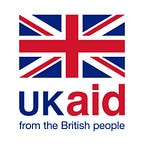“I refuse to cut my daughter”
Meet the mother who broke the cycle of FGM
“I have been cut. It happened when I was 7 years old and it was very difficult and very tough. It’s the kind of event you never forget.” ~ Asseta ~
Mother of three, 35-year-old Asseta lives in a rural village in central Burkina Faso. The majority of women in her country — more than 75% — have undergone Female Genital Mutilation (FGM), also known as cutting.
Female genital mutilation is exactly what it sounds like. It involves cutting or other damage to female genitalia and is a practice which has been carried out for thousands of years. In its most extreme form all the external genitalia are removed and the girl’s vagina is sewn up.
“When I was young, FGM was seen as a celebration. Ten or 15 of my friends were cut at the same time as me — no one thought there was anything wrong with it.” ~ Asseta ~
Globally, at least 200 million girls and women like Asseta have been cut and 30 million girls are at risk over the next decade. FGM can result in severe pain, difficulties urinating and menstruating, pain during sex, serious problems in childbirth, physical disability and psychological damage.
FGM has no health benefits. It is a deeply embedded social norm that is done because it always has been. In the communities where FGM is practised, it is considered essential for marriage and a preparation for womanhood.
But change is happening. Africa is leading the way in the fight to end female genital mutilation with more and more communities, leaders, and policy makers driving a movement to end FGM for good.
Asseta went to peer education sessions about FGM in her village. The community members who ran the discussions were trained by Gascode, which receives support from the UK government via the UNICEF and UNFPA Joint Programme.
The sessions involve the whole community — from girls and women, to boys, men and village elders.
After attending the sessions, Asseta decided that she would be the last girl in her family to be cut.
She talked to her husband, who had also taken part in the community discussions, and together they broke the cycle of FGM in their family.
“Deciding not to get my daughters cut was a tough decision. Going against tradition can be difficult — first you need to convince yourself that the decision you’re making is the best one and you need to know the facts to do that.
Thankfully other people in my community were also learning about the consequences of FGM and we all made the courageous decision to go against tradition.” ~ Asseta ~
This is Awa, Asseta’s 13-year-old daughter. She knows all about FGM — last year she saw one of her friends get cut. She’s relieved her mum has chosen a different path for her.
“Seeing what happened to my friend made me scared. I don’t want to be cut and I’m so happy knowing my parents won’t put me through it.” ~ Awa ~
Today, Asseta leads education sessions to help other parents talk about FGM and to learn about the dangers. Her warmth, openness and eloquence have helped to change attitudes in her community, which has now abandoned the practice.
“These days the atmosphere in our village has changed — everyone has learnt about the consequences of FGM and we speak openly about not cutting our girls.
I hope that my daughters will have good health and I hope that they will not cut their daughters. I hope they will do what I have done for them.”
~ Asseta ~
February 6th is the UN International Day of Zero Tolerance to Female Genital Mutilation. We believe that FGM can end in one generation — but we also recognise this is a huge task — and we all need to work together to make this a reality.
To find out how you can get involved in the global movement for change visit
http://bit.ly/1I0KYT0 where you’ll find lots of information about key organisations working in the fight against FGM.
Background:
The UK is backing the African-led movement to end FGM supporting work in 17 countries across Africa.
To find out more about our work with girls and women visit http://bit.ly/1TDzMjm
All pictures and video: Jessica Lea/DFID
